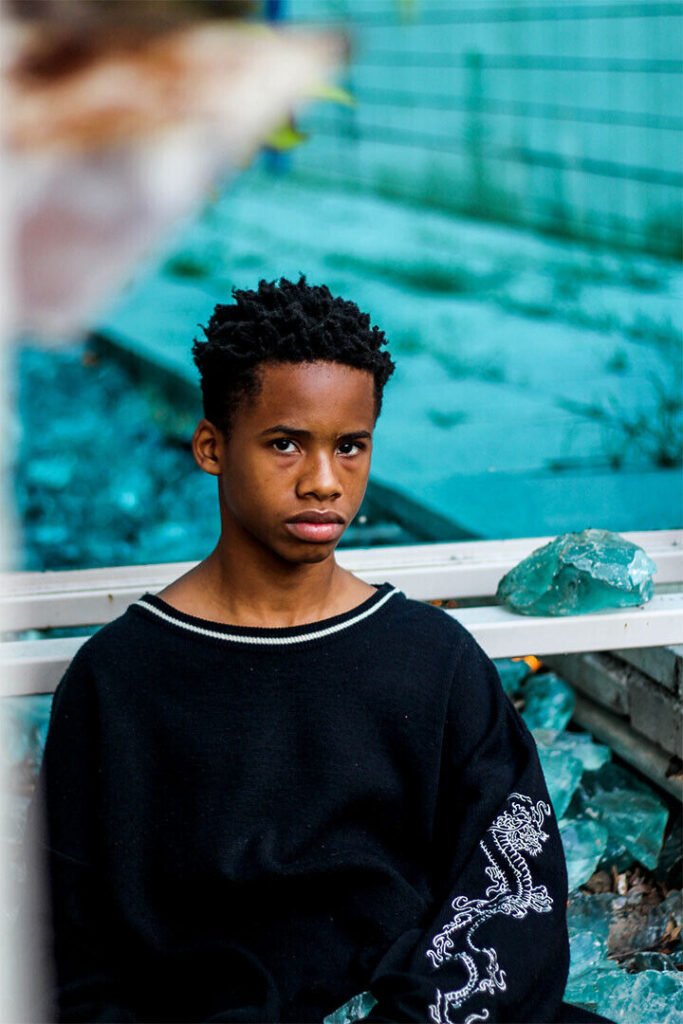The Soundtrack of a Generation’s Rebellion
In a digital era dominated by viral trends, few stories capture the complex intersection of fame, crime, and youth culture like that of Tay K. Born Taymor Travon McIntyre, Tay K exploded onto the rap scene in 2017 with his breakout single “The Race,” a song that would define not only a moment in music but also one of the most controversial criminal cases in recent hip-hop history. What began as a rebellious anthem quickly morphed into a chilling tale of a young artist entangled in real-life violence, fugitivity, and legal downfall. This article explores the full journey of Tay K — from his troubled upbringing to his arrest, sentencing, and the ongoing debates surrounding his legacy.
Early Life and Musical Aspirations
Childhood in Texas and Troubled Roots
Tay K was born on June 16, 2000, in Long Beach, California. He didn’t stay in California long; his family relocated to Arlington, Texas, where he spent most of his formative years. His childhood was marked by instability — both economically and emotionally. Tay K’s father was reportedly in and out of prison, and his environment was one where crime and survival were often inseparable. This backdrop became the foundation for the gritty realism later found in his music.
Despite his surroundings, Tay K found an outlet in music. As a teenager, he gravitated toward rap as a form of expression and resistance. He cited influences like Chief Keef and Soulja Boy, artists who similarly captured the angst of youth growing up in challenging circumstances. His early music, posted on SoundCloud under the moniker Tay-K 47, started gaining attention in local Texas rap circles. But no one could have predicted the storm that was about to come.
“The Race” — Viral Hit or Criminal Confession?
From Fugitive to Charting Artist
In 2017, Tay K released the now-infamous track “The Race” while on the run from authorities. The context behind the song is crucial — Tay K was wanted in connection with the murder of 21-year-old Ethan Walker during a botched home invasion in Mansfield, Texas. Released shortly before his eventual arrest, “The Race” went viral, racking up millions of views on YouTube in a matter of days.
The track was chilling in its directness. Tay K boasted about evading law enforcement, with lyrics that seemed to mock the very system that was chasing him. “F**k a beat, I was tryna beat a case,” he rapped — words that became symbolic of a generation that idolized rebellion and authenticity, no matter the moral ambiguity.
What made the song unique was its raw energy, combined with the real-time nature of the manhunt. Listeners weren’t just fans; they were watching a real-life fugitive rap about his escape. “The Race” entered the Billboard Hot 100 and sparked a viral dance challenge, further pushing Tay K into the national spotlight. But with that fame came scrutiny.
Legal Troubles and Criminal Charges

The Mansfield Murder Case
Tay K’s legal troubles stemmed from a July 2016 home invasion in which he and six others allegedly planned to rob a house known to contain drugs and money. During the attempted robbery, Ethan Walker was shot and killed. Although Tay K did not pull the trigger, prosecutors argued that he was an active participant in the plot, making him equally culpable under Texas’ law of parties.
He was initially placed under house arrest but cut off his ankle monitor and fled. During his time on the run, he was linked to another murder in San Antonio and a robbery and assault in Arlington. His time as a fugitive lasted for several months before he was eventually captured in Elizabeth, New Jersey, in June 2017.
Conviction and Sentencing
In July 2019, Tay K was convicted of murder and aggravated robbery for his role in the Mansfield case. He was sentenced to 55 years in prison, along with additional time for other charges. During the trial, prosecutors used his lyrics and music videos as evidence, claiming they demonstrated a lack of remorse and a glorification of crime.
The use of artistic expression as legal evidence stirred widespread debate. Critics argued it set a dangerous precedent, blurring the lines between art and actual intent. However, the court maintained that Tay K’s actions — not just his words — justified the verdict.
The Cultural Impact of Tay K
A Symbol of Internet Fame’s Dark Side
Tay K’s story is emblematic of how quickly fame can be weaponized — for better or worse — in the age of social media. “The Race” wasn’t just a song; it was a cultural phenomenon. It highlighted how platforms like Twitter, YouTube, and TikTok can catapult someone into stardom, even when they are actively running from the law.
But this viral success came at a cost. It raised questions about the ethics of fandom and the glorification of real-world violence. Why did millions of people celebrate a fugitive? Was it the authenticity? The rawness? Or a deeper societal fascination with crime as spectacle?
Regardless, Tay K became a tragic poster child for a generation where boundaries between entertainment and reality have become dangerously blurred.
Influence on Other Artists and the Industry
Despite his incarceration, Tay K’s influence continues to ripple through the music industry. Artists like 6ix9ine, NBA YoungBoy, and even Lil Durk have cited the impact of viral street rap in shaping their approach to authenticity and audience engagement.
The “Tay K effect” — a term coined to describe the rapid rise of artists through controversy — has changed how labels scout talent. Street credibility, once a quiet undertone, is now often front and center in branding strategies. This trend has sparked criticism for incentivizing dangerous behavior and romanticizing criminal pasts.
Prison Life and Recent Developments
Life Behind Bars
Since his conviction, Tay K has been incarcerated at the Bexar County Jail and has faced additional charges, including involvement in prison-related incidents. Reports have suggested that he is attempting to appeal aspects of his case and maintain his innocence in certain charges.
Despite the limitations, Tay K has continued to release music from prison. These post-conviction tracks haven’t achieved the viral success of “The Race,” but they’ve kept his name alive in rap conversations. Social media accounts managed by his team provide updates, merchandise, and interaction with fans who continue to rally behind the #FreeTayK movement.
Ethical Dilemmas and Societal Reflections
Art or Evidence?
One of the biggest debates surrounding the Tay K case is whether lyrics should be admissible as evidence in court. Critics argue that rap music has always used hyperbole and metaphor — to conflate lyrics with real-life confessions, they say, is discriminatory and targets Black artists disproportionately.
On the other hand, prosecutors and law enforcement view such lyrics as windows into criminal intent and unfiltered confessions. Tay K’s case, with its eerie alignment of lyrics and actual events, sits at the center of this national conversation. Several legal scholars and artists have since called for reform to protect creative expression while ensuring justice.
Conclusion
Tay K’s journey is as haunting as it is unforgettable. His rise from a troubled teen in Texas to a viral rap sensation is matched only by his rapid descent into a life behind bars. “The Race” remains one of the most controversial tracks in modern rap history — not only for its sonic impact but also for the ethical debates it triggered about crime, art, and fame.
At just 16, Tay K became a national sensation. At 19, he was sentenced to decades in prison. His story is a cautionary tale about the seductive power of fame, the harsh realities of the justice system, and the dangers of blurring art with real-life consequences.
As time goes on, Tay K’s legacy will likely continue to spark debate — not just about who he was, but about what his story reveals about the world we live in.
Read more: Gene Hackman Cause of Death: What We Know About the Legendary Actor’s Final Moments


